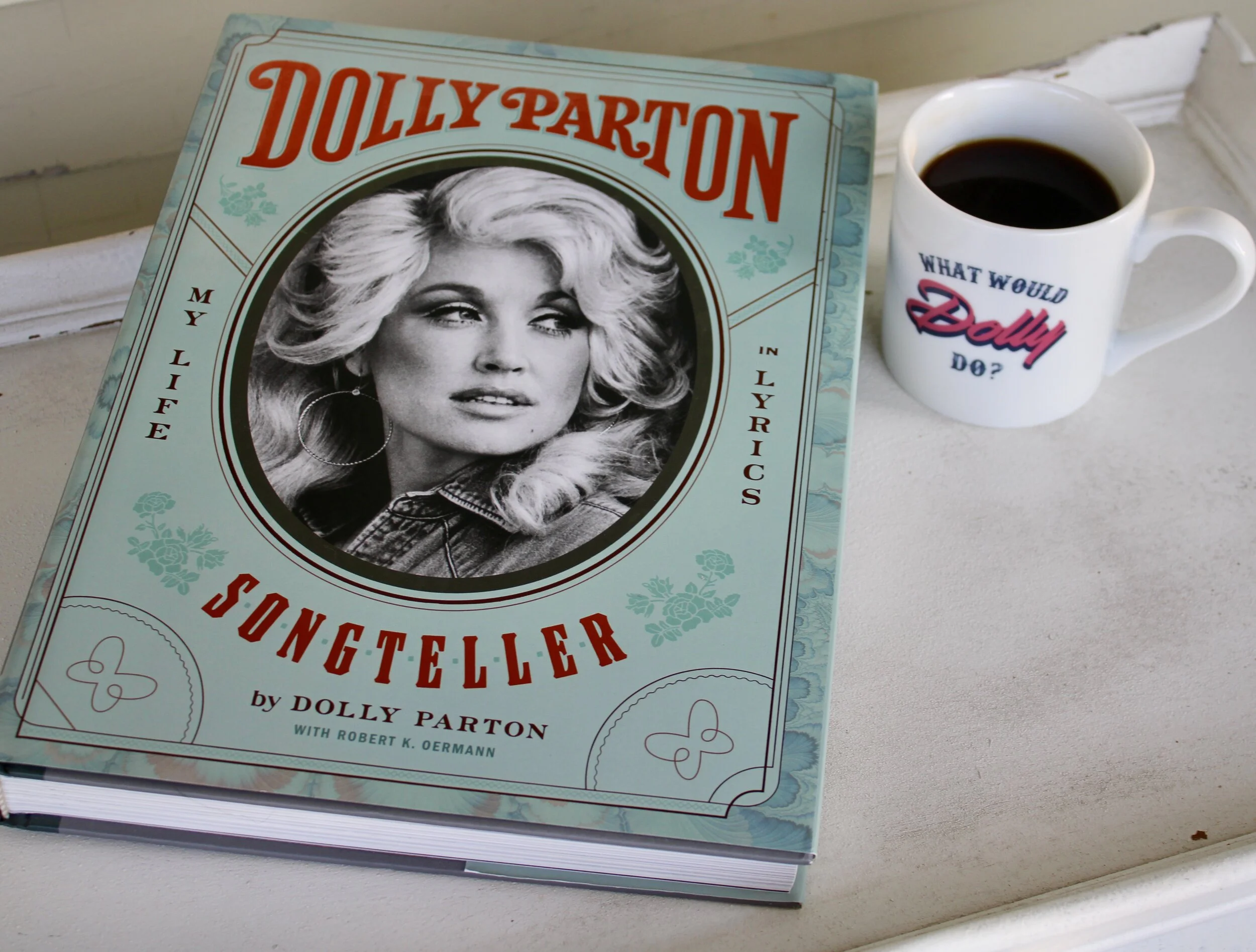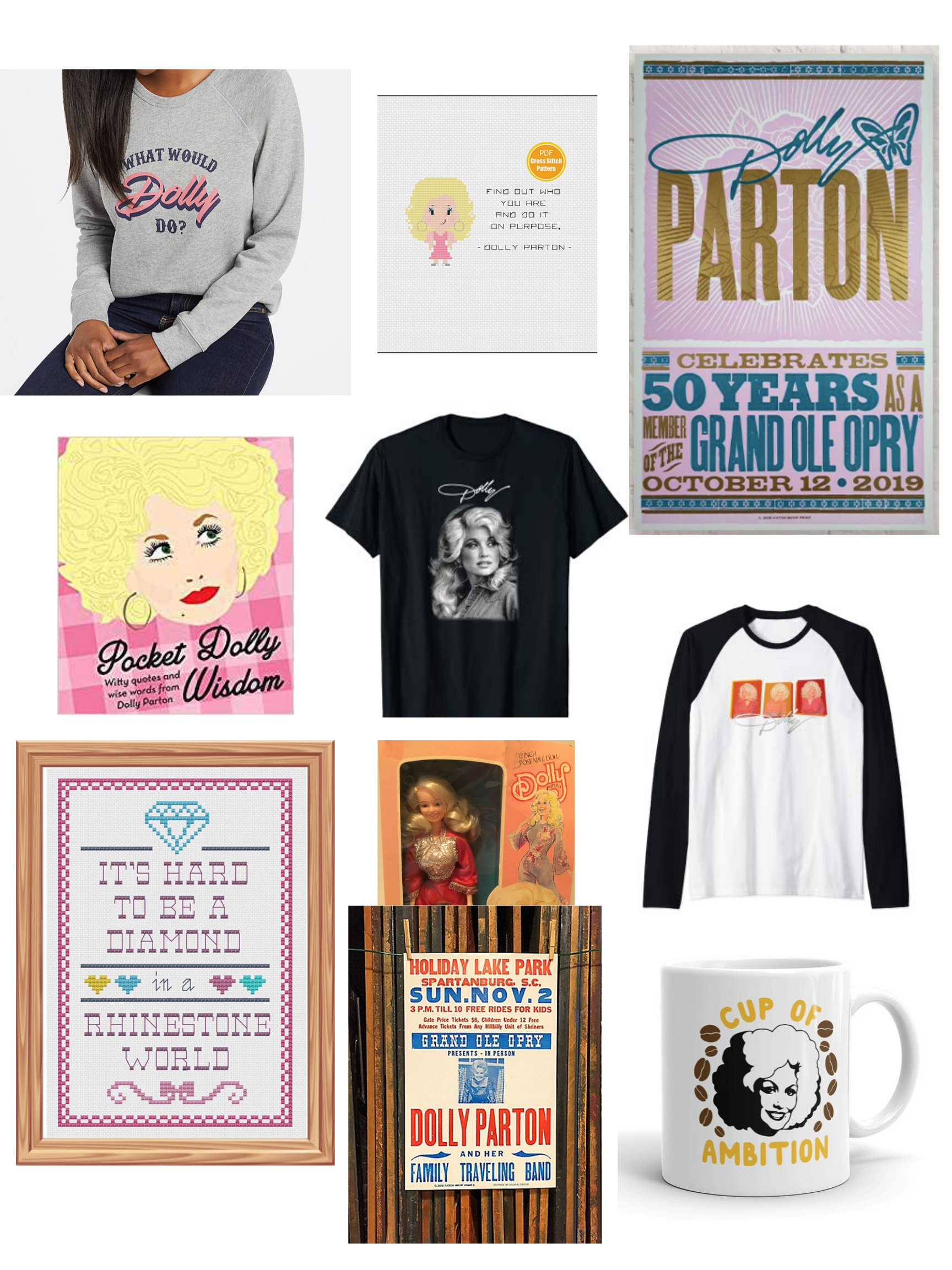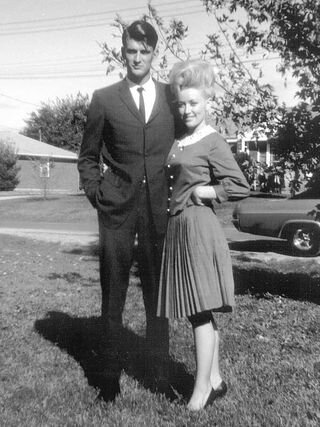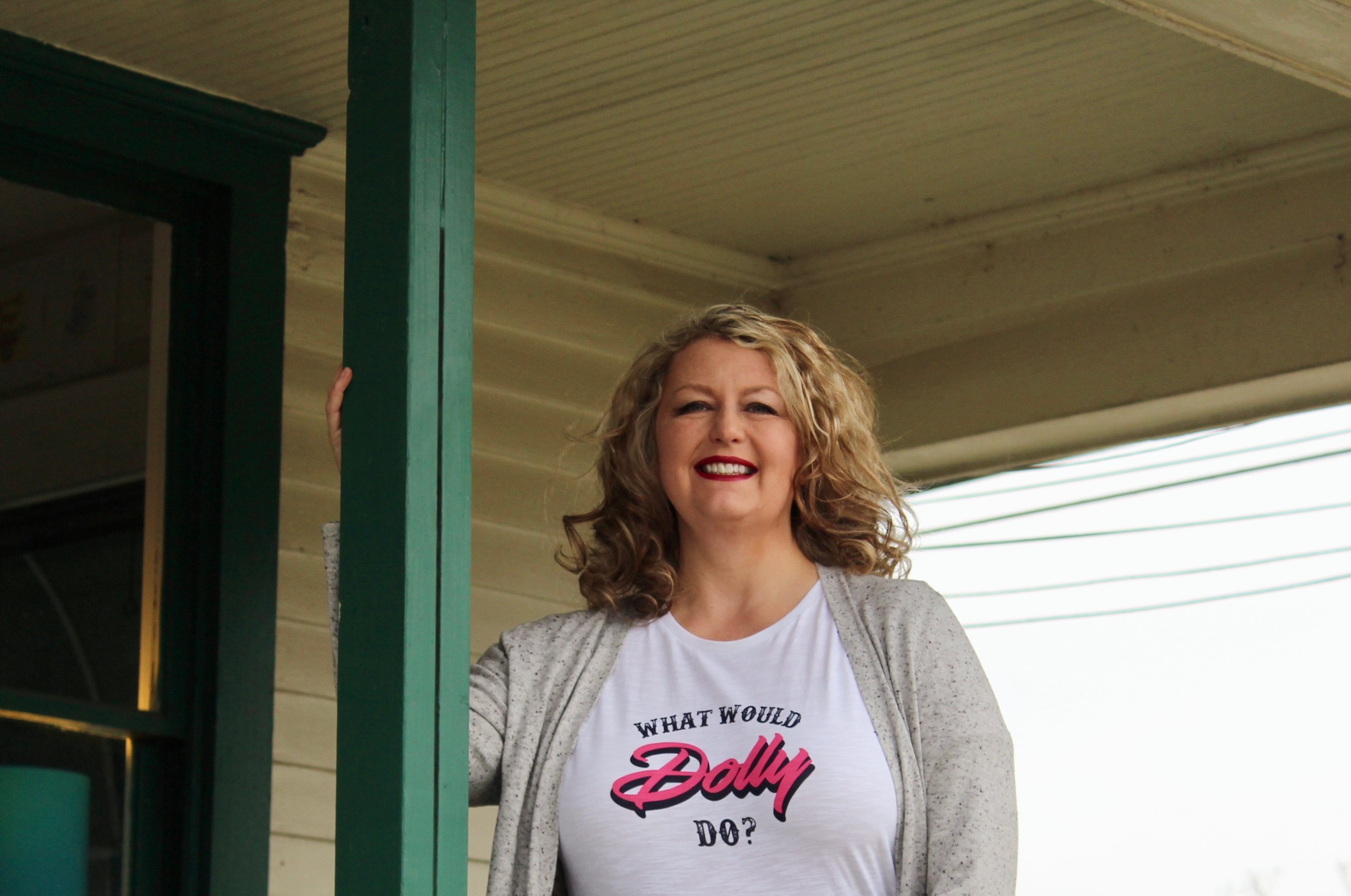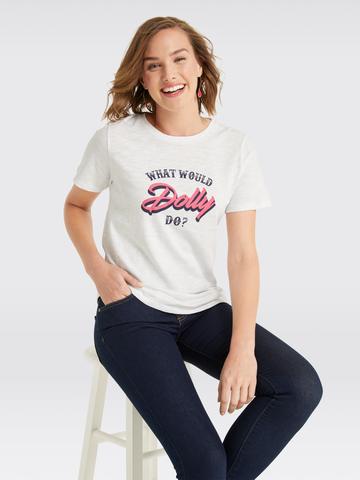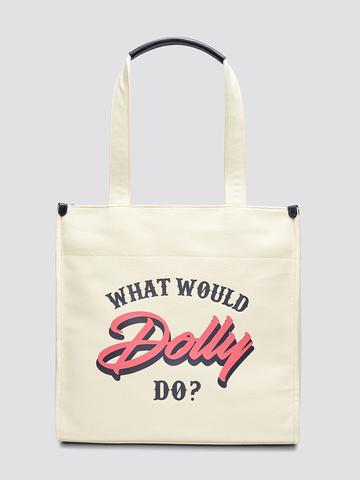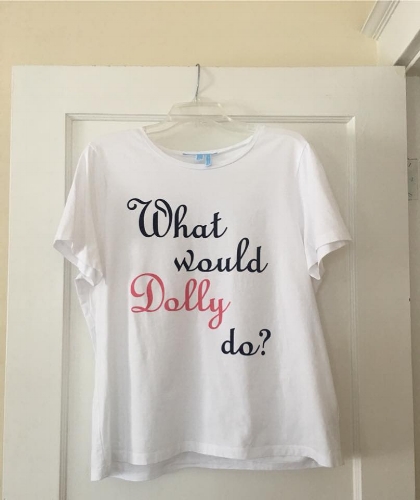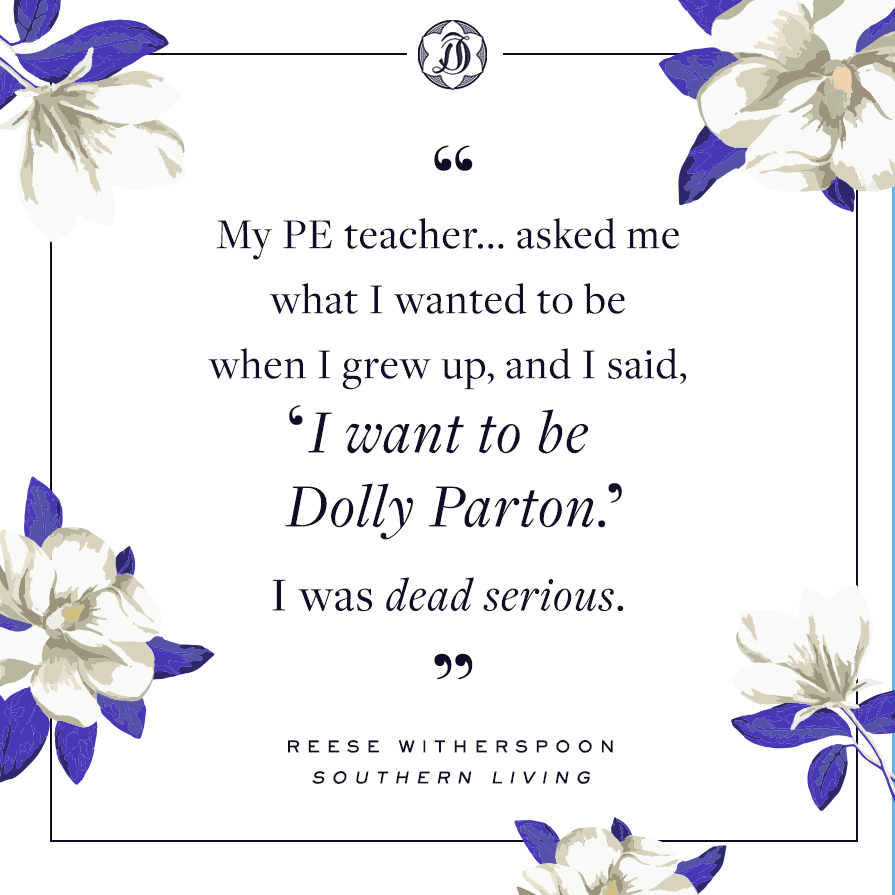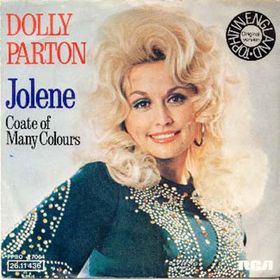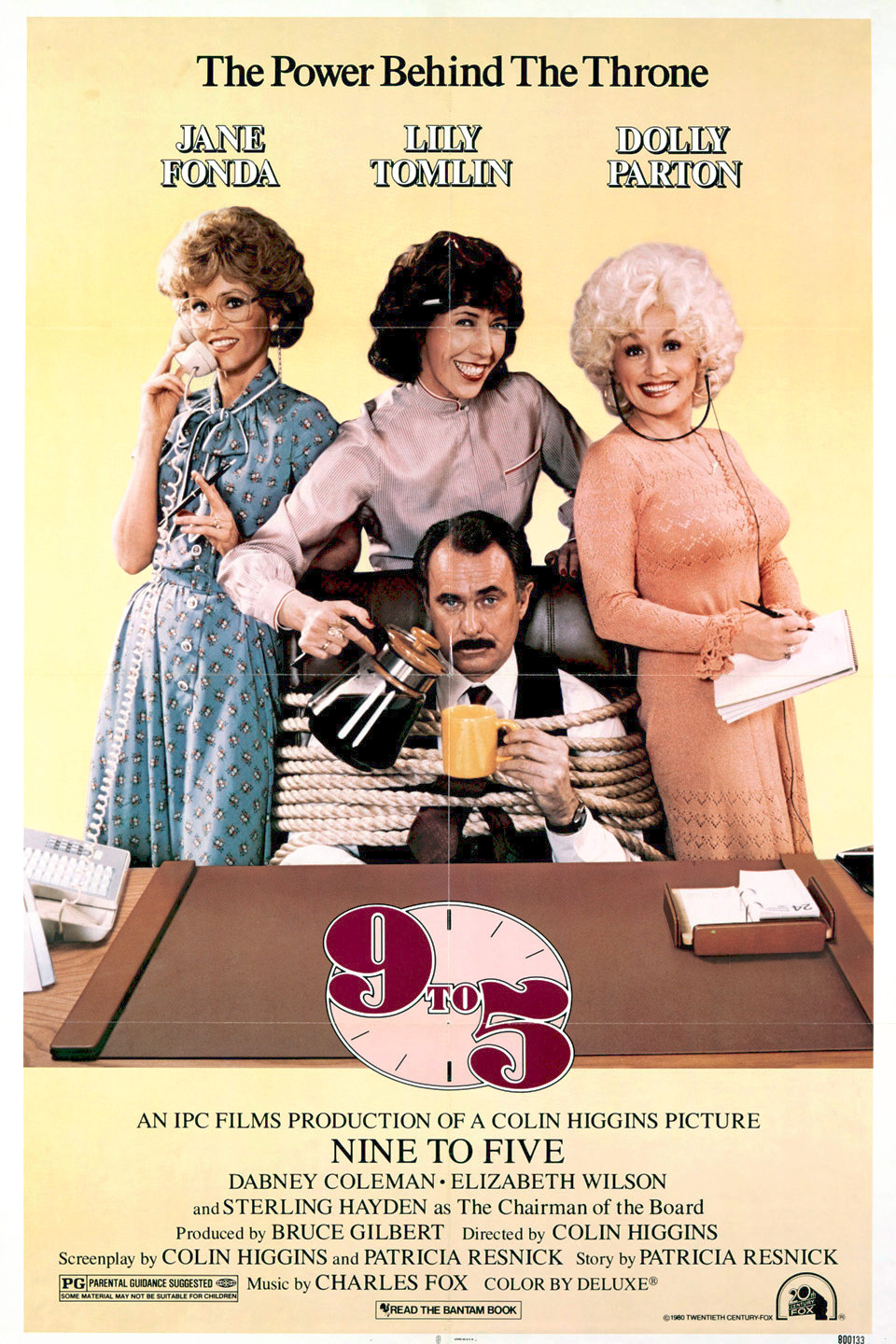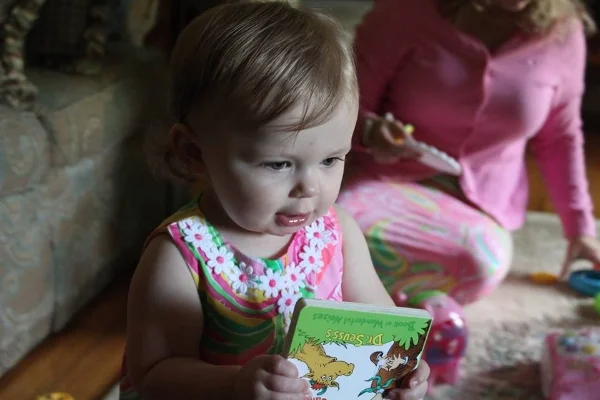Dolly Parton Songteller Book Review
Before she was America’s Patron Saint, Dolly Parton was an amazing songwriter. This book tells the stories behind her most beloved and memorable songs.
There’s never been a more wonderful time to be a Dolly Parton fan, y’all. All of a sudden, the whole world is figuring out what some of us have known for years, which is that Dolly Rebecca Parton of Sevier County, Tennessee is The Actual Queen of All The Things. She’s celebrated as an icon and a philanthropist and a businesswoman. She’s been on TV and Netflix and a quirky little podcast. And it looks like she might just save our lives.
Whatever your conception of Dolly — her over-the-top appearance, her amazing capacity for kindness, her rather newly-anointed status as America’s Patron Saint — her original role is as a songwriter. In Songteller: My Life in Lyrics, Dolly notes that, no matter her accomplishments as an actress and performer, she thinks of herself primarily as a songwriter.
Songteller is a celebration of Dolly’s career as a songwriter, which has spanned over six decades. The book showcases dozens of her most popular and memorable songs, with Dolly providing memories and backstory to each song. The result is a fascinating and visually stunning look at Dolly’s amazing career as a performer and storyteller.
The hardcover coffee table book is a must-have for serious fans of Dolly or of country music. The book features well-known stories like the inspirations behind Jolene or I Will Always Love You, but also dives into stories that may be new even to devotees. (I particularly loved the story of Merle Haggard’s unrequited crush on Dolly!) The Audible version of the book brings an intimacy to the stories, as you actually hear Miss Dolly recalling each song, while the book provides stunning visual accompaniment. Both hardback and audio versions are a fascinating experience for anyone who loves Dolly Parton, Appalachian culture, country music, or just heartwarming and wholesome stories of good music. Both the hardcover and audio versions are 5/5 must-reads!!
Holiday Gift Guide for the Dolly Parton Fan
We all know someone who loves Miss Dolly. Treat them to the best gifts!
{This year, I’ve decided to do something a little different. Rather than typical blogger gift guides — we all know that you can get Diptyque candles at Nordstrom if you care to spend that much for them — I’ve put together a set of gift guides that speak to the interests of HerKentucky fans. Some links will generate nominal affiliate income at no cost to the reader. All opinions are, as always, my own.}
Y’all know I love Miss Dolly Parton. Chances are, there’s someone on your holiday gifting list who does, too. Here are some great pieces that any Dolly fan would love to add to their collection.
From top left:
Draper James What Would Dolly Do? Sweatshirt. I have a few pieces in the DJ Dolly collection, and they always draw so many compliments! (Draper James)
Find Out Who You Are and Do It on Purpose Cross Stitch Pattern: I love this. In fact, I plan to stitch it for my nieces’ bedrooms.
Dolly’s 50th Opry Anniversary Hatch Show Print. I actually have this; a dear high school friend picked it up for me at the show. It is so beautiful and detailed in person!
Pocket Dolly Wisdom. Take Dolly’s best sayings wherever you go.
Dolly Vintage Tee. Pretty much everything in the official Dolly Parton Store on Amazon is amazing. This tee comes in pink; go ahead and order yourself one, too!
1978 Dolly doll. I had one of these when I was a kid. Trying not to order myself another one to display in my office.
Dolly Ringer Tee. Pop Art shots of 80s Dolly.
It’s Hard to Be a Diamond in a Rhinestone World cross stitch pattern. Stitch this up for anyone who knows the value of integrity and hard work.
Hatch Show Print repro: A great reproduction of show art from an early Dolly show.
(no photo) A stay at the Dollywood resort. Obviously.
Happy holidays, y’all. Here’s to selecting fewer and more meaningful presents this season!
What Dolly Parton Means to Me
Why we all need a little Dolly Parton in our lives.
I’ve been thinking a lot about Dolly Parton lately.
Then again, I guess I kind of always think a lot about Dolly Parton. If you’ve read my blog for any time at all, you know that she’s basically my hero.
I’m not the only one, though. It seems Miss Dolly has been everywhere in pop culture lately. She recently celebrated her 50th Anniversary as a member of the Grand Old Opry. Her brilliant film 1990s film Steel Magnolias enjoyed a limited theatrical run earlier this year, and the British adaptation of her 9 to 5 musical debuted in January. She played a surprise gig with the Highwomen at the Newport Folk Festival a few months ago, recently co-hosted the CMA awards, and had a huge role in telling the story of country music in Ken Burns’ brilliant, recently-aired documentary. She has a series of Netflix films on the way and she is the subject of the most intriguing podcast that I’ve heard in ages. If you have any ties to the Southeastern United States, then you already know that she’s a national treasure. With Miss Dolly’s name on everybody’s lips, I recently had a bit of a realization.
I’ve kind of spent my adult life trying to be Dolly Parton.
Okay, that sounds a little too cute by half. Hear me out, though. I spent my teens and early twenties as a curvy, opinionated, big-haired southern girl during the “waif is in”, Kate Moss-fueled 1990s. Back then (and, truthfully, to this day still), I really only knew how to fix my hair by making it bigger. After all, as Dolly’s Steel Magnolias character Truvy brilliantly noted, “there is no such thing as natural beauty.” But beyond the big curves and even bigger hair, there’s always been a lot about Dolly Parton that resonates with me. When you look past the hair and the boobs and the rhinestones, Dolly’s story is pretty common among Appalachian women: it’s one of hard work, good humor, dedication to family and, above all, it’s a story of kindness.
Now, of course, there was a time when Dolly’s folksy humor, rife with self-deprecating boob jokes, seemed dated and cringeworthy to me. In analyzing her message as an adult, however, I’ve realized how much mystique she’s been able to maintain by only talking about her most obvious assets. In a great recent New York Times piece, Lindsay Zoladz argues that the things that once made Dolly a little brash and — dare I say it — a little trashy are no longer taboo; in effect, popular culture has caught up with her. She knows how to tell a grandma joke and, in her own words, make Jimmy Fallon look like a dumbass. There’s certainly an art to saying things that are just a little bit dirty or outré in order to deflect from truly personal or substantive conversation. “When all else fails, tell a tit joke,” Dolly laughs to Dolly Parton’s America podcast host Jad Abumrad in reference to the 2017 Emmy Awards, when her 9 to 5 costars Lily Tomlin and Jane Fonda made pointedly anti-Trump remarks while Dolly laughingly changed the subject to her own most famous assets. There’s a tinge of sadness in her voice, but a whole lot of resolve. She’s not going to be put on the spot or bullied into saying something that she doesn’t want to. Over the years, I’ve noticed that, time and again, she tells interviewers that they can ask whatever they want, but that she’ll only tell them what she wants them to hear. She skims over the more personal details of any story Mr. Abumrad seeks out, often saying “well, that’s personal” when a question goes too far. She portrays herself as an open book when it comes to her love of flashy clothes, cosmetic procedures, and wigs (“It costs a lot of money to look this cheap,” she’s often quoted as saying), but private details of her life are just that — private. After all, she’s been quite open about choosing to have cosmetic alterations and a particular silhouette. There’s a remarkable amount of power in owning that narrative and moving forward with its implications in an honest and unflinching manner. Like many other aspects of Dolly’s story, it’s a reminder that being a lady has absolutely nothing to do with one’s financial or educational background, but rather with how one conducts herself. She’s never been involved in tabloid scandals or gossip; in fact, she’s been married to Carl Dean for 53 years. Dolly isn’t a lady in spite of her hillbilly upbringing or her Nashville glitz; rather, she’s a lady because of it.
Dolly Parton and Carl Dean. Photo via Country Living
Dolly hails from Sevierville, Tennessee, a small town in the Appalachian mountains. Sevierville is about two hundred miles south of my own tiny Appalachian hometown, and her experiences in her Tennessee Mountain Home are certainly familiar to me. In the podcast episode in which Mr. Abumrad describes Dolly’s homestead, he draws the parallel to his father’s modest home in rural Lebanon; I immediately saw the house where my grandfather grew up in 1920s Knott County. In the same podcast episode, when it’s referenced that Dolly’s nieces and nephews call her “Aunt Granny”, I felt a fast kinship. That particular brand of colloquial endearment took me home to the holler immediately.
My grandparents with my father and aunt. Easter, 1950s
One of the major themes of Ken Burns’ Country Music was the rise of what was originally called “hillbilly music”— one of the formative influences on modern country music. Of course, for any of us who were raised in the holler, the “h” word is pretty loaded. We try hard to escape it and we rail against it with an odd mix of pride and shame. When I ran across a quotation from Dolly about her hillbilly childhood in a 2014 Southern Living interview, of course her stance made sense. Maybe leaning into the hillbilly narrative —taking back the idiom, as they say — is the most powerful way to proceed. As always, Dolly herself said it best: “I’m proud of my hillbilly, white trash background. To me that keeps you humble; that keeps you good. And it doesn’t matter how hard you try to outrun it—if that’s who you are, that’s who you are. It’ll show up once in a while.” It’s the story she’s told time and again in songs like Coat of Many Colors. And, at least to this mountain girl, it’s far preferable to railing against popular perceptions and misconceptions of hillbilly life; rather, she acknowledges its reality and celebrates its beauty. Miss Dolly has better things to do with her time, and I like to think that I do, too.
My aunt Marie and Uncle Ed with my father and aunt.
Dolly’s connections to her Appalachian upbringing don’t just resonate with me in a sociological analysis of mountain culture; her stories also feel very similar to my own mountain experiences. When Dolly’s nephew Bryan Seaver talks to Jad Abumrad about “Aunt Granny”, I immediately see my Momaw Ree — my great aunt Marie, an over-the-top fabulous aunt who had no kids herself, but who loved her dogs and spoiled her nieces and nephews. It’s a role I proudly find myself taking on with my own nieces as time progresses. In fact, just the other day, I found myself curling my eldest niece’s hair and saying “you know your hair turns out better if you listen to Dolly Parton while you’re fixing it, right?” To her credit, she nodded enthusiastically.
To me, Dolly Parton symbolizes a deep love of Appalachia and of folks who could use a helping hand. Her commitment to charities that help people in underserved areas — specifically her Imagination Library and her assistance to people of Gatlinburg who lost their homes to forest fires — is so remarkable. This isn’t about a wealthy singer looking for a tax shelter; it’s about helping people who, like Dolly herself, have experienced life in a tremendously economically depressed area.I love that she is about helping people get on their feet and make their own lives better. I love that she’s helping people without any sort of savior complex. When she references helping kids learn to love reading at an early age because her own daddy was illiterate, her words are filled with compassion, not exploitation.
My grandfather taught school and played a Martin guitar; he lived in a small Eastern Kentucky town.
For most folks who grew up in Appalachia, the land, the culture, and our own families are inextricably linked. We know that you’re committing the sin of vanity if you “get above your raisin’.” And, the “hillbilly music” that my granddaddy and his brother played will always tell part of our generational story. My grandfather loved old time country music, and he loved Miss Dolly. I suppose, as these things go, it makes sense that my daddy doesn’t particularly enjoy what is, to him,“dad music” like Dolly and Porter Wagoner — he’s more of an Allman Brothers and Beatles guy. But, I grew up with my grandparents listening to Dolly Parton and Loretta, and the voices of those strong women always take me back to my childhood.
Now, I’m pretty sure that Dolly’s message doesn’t just resonate with me. Obviously, she’s having a huge media moment. Walk into any Draper James store and their staff will tell you they can’t keep the What Would Dolly Do items on the shelf; look up the “Dolly Parton’s America” podcast on iTunes and you’ll see over seven thousand reviews. Dolly’s certainly having a moment, and I think it’s attributable to way more than having a good PR team. I think that her unwavering message of kindness is certainly something that we all need to hear these days. When Garden and Gun ran a feature article about the thirtieth anniversary of Steel Magnolias, an anecdote from playwright Robert Harling stuck out to me: “Julia said, ‘Dolly, we’re dying and you never say a word. Why don’t you let loose?’ Dolly very serenely smiled and said, ‘When I was young and had nothing, I wanted to be rich and famous, and now I am. So I’m not going to complain about anything.’” I mean, this is so beautiful and profound. It’s why Dolly deserves every ounce of adulation and recognition that she receives. And, it’s why she’s loved by such a disparate group of fans.
Dolly’s universal appeal, as referenced by Mr Abumrad throughout Dolly Parton’s America and celebrated in the film Dumplin’, is that she is equally loved by evangelicals and drag queens, hipsters and hillbillies. Part of this, of course, is her hauntingly beautiful singing voice and her rare talent for writing enduring songs. Part of it is her message of love and kindness — her conception of God as loving all people. Part of it, too, is her treatment of everyone with dignity. One of the most interesting points raised thus far in Dolly Parton’s America is what Dolly’s nephew Bryan Seaver calls “Dollitics” — Dolly’s personal and public views on political and social issues. She’s at once outspoken and evasive. The oddest and most uncomfortable portions of the Dolly Parton’s America podcast arise in regard to Dolly’s political stances. Mr Abumrad and his producer, Shima Oliaee, seem committed to the idea that Dolly almost owes them a declaration that, as a young Nashville singer-songwriter, she was a protofeminist. Similarly, they seemed floored that she won’t make a ragingly anti-Trump statement. The analysis seems very “Ok, Boomer” at times: maybe if we keep reframing feminist ideas in a palatable manner, we’ll force Dolly to admit that she espouses these views. Similarly, there’s an air of disbelief that she won’t renounce President Trump and his voters. We live in very polarizing political times, and I do think that there is a strong belief that every American falls neatly into the red-or-blue cable news ideological dichotomy - what my friends Sarah and Beth over at Pantsuit Politics call our political jerseys. Even Dolly’s sister, who teaches domestic violence awareness courses, has criticized Dolly’s refusal to openly declare political stances. That’s all a little odd to me.
We live in an era in which we all feel compelled to take strong political stances. Nearly all of us have friends and relatives who identify strongly along both sides of the partisan divide. It’s very easy in the era of party-specific news channels and seemingly endless daily Facebook rants to characterize those with whom we disagree as cartoonish buffoons. I know that I try in my own daily life to consider the motivations and merits of those who disagree with me. I want to see the same in Dolly Parton. I tend to hope that she’s trying to see the value in her disparate fans’ opinions. I like to think that Dolly embraces the diversity of messages her fans espouse — “I’m here for you evangelical Christian Republican AND for your hyper-liberal counterpart” is the very reason why she has established the universal appeal for which she’s currently being celebrated. She’s embraced her LGBTQ fans with such kindness and compassion in a manner that incorporates her own Christian faith, and she is resolute in providing a message of inclusion and grace for all. But, whether she’s America’s open-hearted “Aunt Granny” or a shrewd businesswoman who doesn’t want to piss off any of her constituent fan bases or, as is most likely the case, a little of both, how much of a political opinion do we actually need Dolly Parton to express? Is it necessary for the woman who gave us some of the greatest songs of the country music canon to also provide staunch political commentary? Maybe it’s enough for her to say “all of y’all are welcome in the Dollyverse. Let’s lay aside our political differences, I’ll make a boob joke, and we’ll all sing along to Jolene.”
I’ll be one down in the front row with my hair teased up as high as it’ll go.
Love Dolly as much as I do? Don’t miss my holiday gift guide for Dolly lovers!
Shop the post
Steel Magnolias Thirtieth Anniversary
Reflections on sisterhood, aging, and the classic chick flick.
Yesterday, I went with a group of girlfriends to see the thirtieth anniversary rerelease of Steel Magnolias.
Now, I’ve kind of grown up with Steel Magnolias. I was in high school when the film came out, and of course I loved it right away. In college, I felt a huge bond with the Shelby character, as she was based on a real-life woman (playwright Robert Harling’s late sister Susan Robinson) who’d been, like me, a member of Phi Mu Fraternity. Not only did Shelby, Julia Roberts’ character, have big curly hair, a Southern accent, and an obsession with the color pink (just like me…), she was my sister. There were little tributes to Phi Mu all over the film: pink carnations, a Phi Mu composite, a Phi Mu badge on Shelby’s wedding reception suit, etc; when I was in college at Transylvania, our Phi Mu chapter loved to watch the film as a sisterhood event and note these details. And, of course, the mother-daughter pair of Shelby and M’Lynn had that sometimes rocky, always honest and unshakeable bond that only happens when both the mother and the daughter have strong personalities and deeply-held convictions. Ask me how I know…
It’s really odd and lovely to go to a theater and revisit a film you’ve loved for decades. You’re not flipping through commercials or taking breaks or getting distracted by your phone. You’re giving the film your entire attention, and you notice things you’ve forgotten along the way. And, I have to say, there are A LOT of differences between watching a film at 13 or 23 and watching it as an adult.
At one point in the film, Dolly Parton’s character, Truvy, says “Time marches on and sooner or later you realize it is marchin' across your face.” Now, in 1989, the year that Steel Magnolias was released, stars Dolly Parton and Sally Field were both 43 years old, the age that I am now. Olympia Dukakis was 58 and Shirley MacLaine was 55. I guess I shouldn’t be surprised by this, but I found that, in watching Steel Magnolias yesterday, I identified way more with those actresses’ characters than with the then-22 year-old Julia Roberts.
Of course, Dolly was, is, and always will be The Queen. I think basically anyone who’s read my blog or followed my instagram knows that I’m obsessed with Dolly Parton. Her Truvy is the moral center and the comic relief of Steel Magnolias. Previously, I hadn’t really thought about the portrayal of Truvy’s marriage and the arc of her depressed, out-of-work husband, but Dolly and Sam Shepard really do convey a lot of big statements about relationships in a relatively brief number of scenes. It isn’t one of the laugh-out-loud, imminently quotable storylines, but it’s beautiful, as is the late-in-life, reluctant romance between Shirley MacLaine’s character Ouiser and her sweet suitor Owen. (The character Owen was played by the late actor Bill McCutcheon who, IMDB tells me, is from my husband’s Kentucky hometown. Small world!)
Watching Steel Magnolias in my forties, I realized I felt more kinship with M’Lynn’s pragmatism than Shelby’s dreamy optimism. Like Ouiser, I grow vegetables, wear funny hats, am not as sweet as I used to be, and would donate a kidney to my dog. And, like Truvy, I firmly believe there’s no such thing as natural beauty. It’s interesting to see how my tastes and opinions have grown up in relation to a film I love. It’s also interesting to see elements I may have missed when I was younger, like dialogue in which Robert Harling signaling his own gay identity at a time when sexual orientation politics were far more coded than they are today. I’d also forgotten how very terrible Daryl Hannah’s Southern accent is, and hadn’t realized that Harling himself appears in a cameo as the wedding minister.
It was great to see that Steel Magnolias holds up as an incredible film after 30 years. All of the quotes you remember are as hilarious and heartbreaking and all-around perfect as you remember. I loved being able to celebrate female friendship with a group of dear friends, including a lovely mother and daughter pair. If you can make it out to a showing of the film this week (there are additional showtimes in Lexington and Louisville on Tuesday and Wednesday!), you absolutely should. And, if you love the film as much as I do, you should probably check out the coverage that Garden & Gun has given the play and the film in recent years, especially their excellent podcast episode.
What Would Dolly Do Tee
New Dolly gear from Draper James and an opportunity to shop for a good cause!
Y’all, Draper James redesigned the What Would Dolly Do? line, and it’s cuter than ever. Of course, I had to get the tee straight away, and the tote is on my wish list! I never miss an opportunity to tell the world how much I love Miss Dolly. (Click the photos below to shop the entire new collection!)
Shop the Dolly line and the rest of the Spring Collection with me at the Lexington Draper James store on Tuesday, February 26th from 6-8 pm and 15% of your purchase will graciously be donated to Dress for Success! I hope to see y’all there!
Happy Birthday, Miss Dolly!
Celebrate Dolly Parton's birthday with purchase benefitting Imagination Library!
(This post may contain affiliate links. I may receive a small per-click commission on some product links at no additional cost to you! Thank you for supporting HerKentucky.com!)
Dolly Rebecca Parton was born January 19, 1946 in Sevier County, Tennessee, the fourth of twelve children born to a subsistence farm family. Dolly's family may have been poor, but she had dreams of doing something great. "I went to bed hungry many nights as a child," she's said. "It was a Dream that dressed me up when I was ragged, and it was a Dream that filled me up when I was hungry. Now it's my Dream to see that no child in this world ever goes hungry." When Dolly began making money as a singer and songwriter, she and her husband Carl Dean provided for her younger siblings. As much as her prolific songwriting career -- she just was awarded two Guinness World Records for her long-lived success -- Dolly is known for her amazing sense of humor, over-the-top style, and her kindness.
Now, y'all know that I'm basically obsessed with Dolly not only because of her amazing songs (Jolene is my favorite!) and her amazing films (9 to 5 and Steel Magnolias both had a huge impact on my early life!) but also because of her graciousness and kindness. I love that she's embraced all her fans and made Dollywood an inclusive, LGBT-friendly workplace. I love that she's providing preschool children around the world with books through the Imagination Library. And I love that she never forgets where she came from. Robert Harling, who wrote Steel Magnolias, recently recalled Dolly's amazing attitude on the film's set in a Garden and Gun article. While the film's other ladies were complaining about wearing heavy Christmas sweaters in the Louisiana heat, Dolly kept her cool, both proverbially and literally:" The women were dressed for Christmas, and Dolly was sitting on the swing. She had on that white cashmere sweater with the marabou around the neck, and she was just swinging, cool as a cucumber. Julia said, 'Dolly, we’re dying and you never say a word. Why don’t you let loose?' Dolly very serenely smiled and said, 'When I was young and had nothing, I wanted to be rich and famous, and now I am. So I’m not going to complain about anything.'" I mean, that's a lesson we could all take to heart: remembering the blessings we actually have.
To celebrate Dolly's birthday, our friends at Draper James are donating all of their online and in-store proceeds for the day to Dolly's Imagination Library. Y'all, this is seriously one of the coolest initiatives ever. Miss Dolly founded the Imagination Library in 1995 to provide books to the children of her hometown Sevierville, Tennessee. Dolly's mission to ensure that children had access to high-quality, age-appropriate books, regardless of household income, was designed to honor her own father, whose circumstances in the Appalachian hills of Tennessee led to his never learning to read or write. Over the past 22 years, the Imagination Library has mailed more than 100 million books to children in Australia, Belize, Canada, United Kingdom and the United States. This service is completely free to the recipients, y'all! Over 1600 communities are served, and over 1.1 million children have registered! Here in Kentucky, there are over fifty Imagination Library affiliate programs. You can register your child aged 2-5, regardless of household income, if you live in an area supported by the Imagination Library.
I LOVE my What Would Dolly Do tee from Draper James, and I want the tote bag so badly. Celebrating Dolly's birthday AND helping kids have access to books sounds like a win-win reason to order it, doesn't it?
Do y'all love Dolly as much as I do? Tell me your favorite Dolly song or role in the comments below!
Dolly Parton's I Believe in You Benefits Imagination Library
The beloved Appalachian-born singer's new album benefits her childhood literacy nonprofit.
I seriously love Dolly Parton, y'all.
Reese Witherspoon knows what's up.
I mean, she's a mountain girl with big hair who followed her dreams and forged her own path. She basically drew a road map for me.
Of course, beyond her timeless songs (there really isn't a serious argument against my belief that Jolene is the best song ever written...) and two of the most iconic movie roles ever (Doralee and Truvy, obvs), there's Dolly's commitment to treating others well, sharing her good fortune, and generally doing the right thing. Dolly has been vocal about her support of marriage equality. She gave millions of dollars Gatlinburg-area families the funds to help them get back on their feet after devastating fires claimed their homes.
And then there's the Imagination Library. Y'all, this is seriously one of the coolest initiatives ever. Miss Dolly founded the Imagination Library in 1995 to provide books to the children of her hometown Sevierville, Tennessee. Dolly's mission to ensure that children had access to high-quality, age-appropriate books, regardless of household income, was designed to honor her own father, whose circumstances in the Appalachian hills of Tennessee led to his never learning to read or write. Over the past 22 years, the Imagination Library has mailed more than 100 million books to children in Australia, Belize, Canada, United Kingdom and the United States. This service is completely free to the recipients, y'all! Over 1600 communities are served, and over 1.1 million children have registered!
Here in Kentucky, there are over fifty Imagination Library affiliate programs. You can register your child aged 2-5, regardless of household income, if you live in an area supported by the Imagination Library. I love the fact that my little niece receives a monthly Imagination Library book! She already loves books, the alphabet, and reading, and she's showing every sign of having some seriously big hair of her own. It’s a pretty good start for a little mountain girl!
If you love Miss Dolly (and childhood literacy) as much as I do, then you should check out Dolly’s new children’s album, “I Believe in You” which is available in stores today! All proceeds from the album benefit the Imagination Library. There’s even a special edition CD package that comes with a children’s book based on Dolly’s song Coat of Many Colors. What a cute Christmas present!
Here's to big-haired mountain girls who know what they want, and who always exhibit grace and kindness on their journey!
Love Dolly as much as I do? Shop the Draper James What Would Dolly Do collection! This tee might be the most-complimented item I own!

